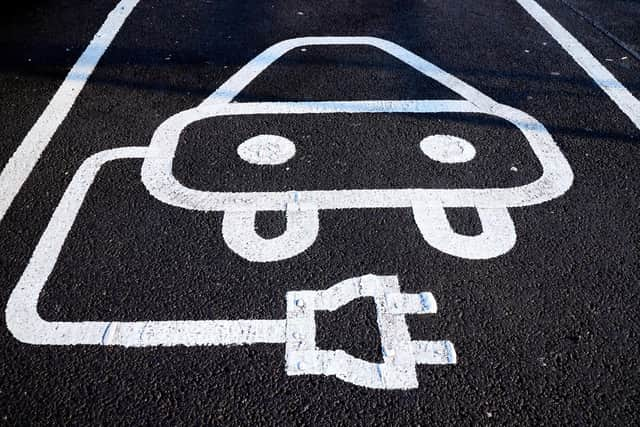Government making 'slow progress' on net zero and levelling up goals, National Infrastructure Committee warns
The body, which is the UK’s official independent infrastructure adviser, also highlighted the need for the Government to support local authorities in delivering a promised new mass transit system for West Yorkshire, as well as bringing forward similar schemes in other areas of the country.
Its progress review said it was positive that clear, long-term goals are now in place across most infrastructure areas and gave credit for increased investment – a £100bn commitment over the next three years, alongside an indication of increased spending in the long term.
Advertisement
Hide AdAdvertisement
Hide AdBut it warned the Government is making slow progress in achieving key objectives in its National Infrastructure Strategy, which in 2020 set out ambitions to hit net zero by 2050 and boost economic growth across the UK.


The commission added that “some of the strategies government has developed over the last year lack detailed delivery policy, leave key gaps, or simply do not go far enough”.
The commission’s review highlights the need the need for a “rapid shift” away from competitive bidding between councils for short-term transport funding allocations towards long term devolved funding settlements.
It said: “While the Levelling Up White Paper promises a plan for streamlining the funding landscape, this needs to be turned into real change quickly.
Advertisement
Hide AdAdvertisement
Hide Ad“Local areas should have robust monitoring and evaluation plans for the impact of investments, so devolution is accompanied by accountability.”
The commission added: “The planned new devolution deals for local areas in England will need to be in place much sooner than 2030.
“Local transport authorities in these areas should receive five year integrated settlements covering funding streams for maintenance and upgrades, so they have the planning certainty to develop long-term local infrastructure strategies, supported by clear project pipelines. This would mirror the important transport settlements now in place for the city regions, as recommended by the commission.”
It said clarity is needed on the costs of the nation making the transition to a net zero economy.
Advertisement
Hide AdAdvertisement
Hide Ad“Ultimately, that will either be taxpayers, consumers, or a combination of both. But ensuring the costs are distributed fairly is critical. Delays to decisions on who pays are now holding up delivering infrastructure, including low carbon heat and energy efficiency. Open and honest conversations, followed by clear decisions, are needed to address this.”
The Commission’s chairman, Sir John Armitt, said: “At a time of significant global volatility alongside concerns about rising living costs, we appreciate that sticking to a long term strategy is not easy.
“But it is the only way to address the stubbornly difficult problems that will not become any easier or cheaper to solve by delaying action – and the quicker we tackle them, the quicker society and our environment will reap the benefits.”
Sir John also called for the Government to “turbo charge” the roll-out of electric vehicle charging points.
Advertisement
Hide AdAdvertisement
Hide AdA Government spokesperson said: “We are committed to delivering an infrastructure revolution to level up opportunities across the whole of the UK – and are making great progress. This includes the creation of the UK Infrastructure Bank, and the continued increase of both gigabit broadband coverage and renewable electricity capacity.
“We committed £100billion at the Spending Review to deliver on our commitments in the National Infrastructure Strategy, including an unprecedented investment to improve connections in our city regions, and billions to decarbonise buildings.
“In the coming weeks we will set out our vision for the continued roll-out of a world-leading charging infrastructure network across the UK, and how we will support the transition to net zero.”